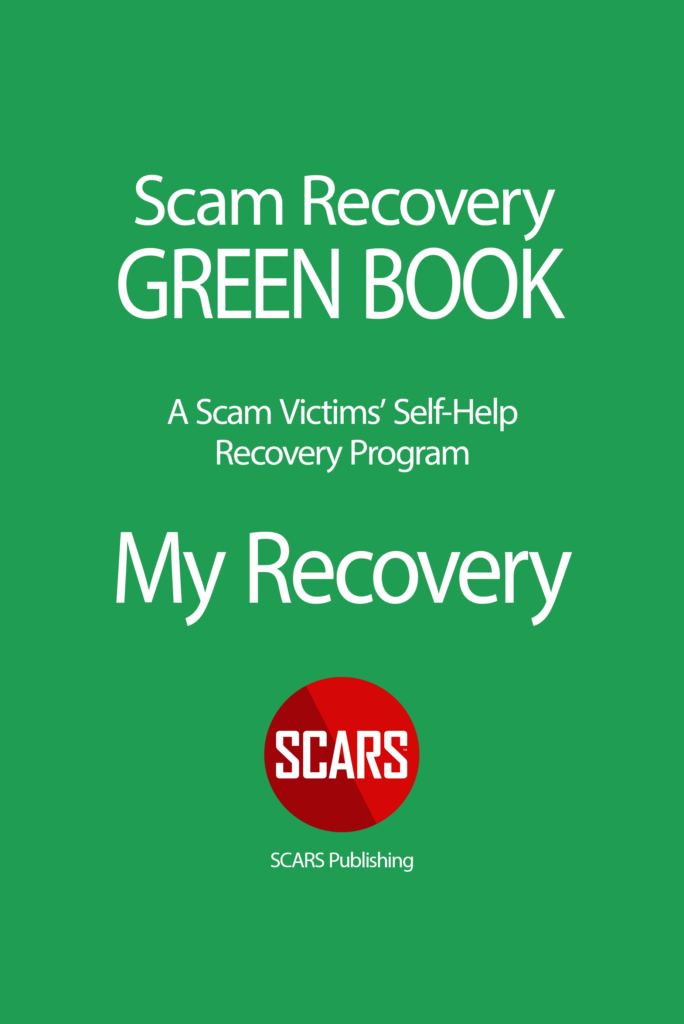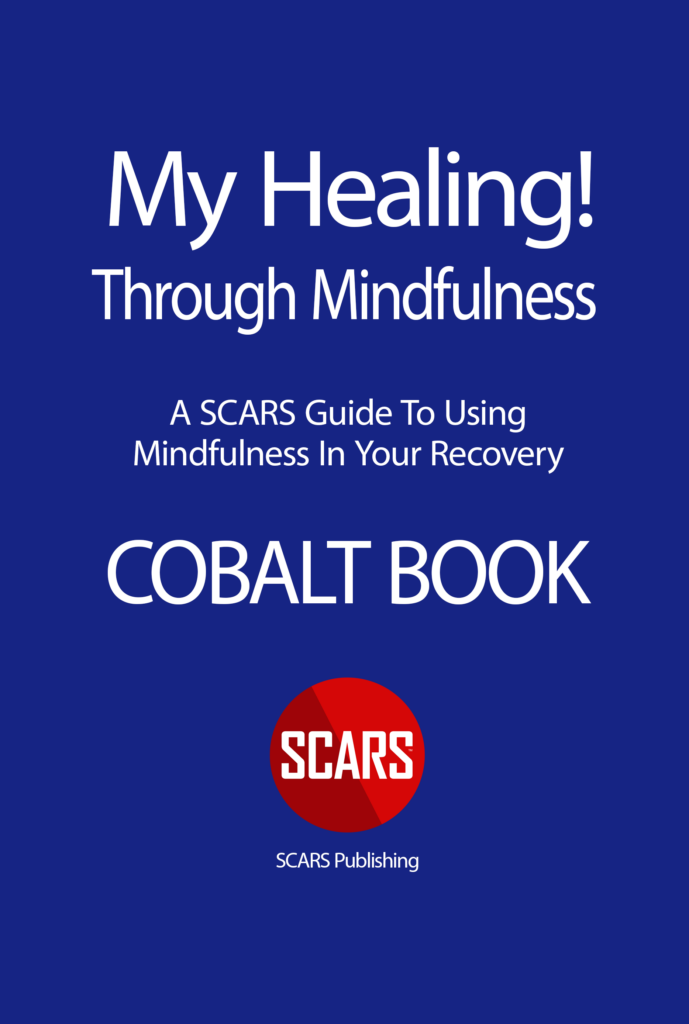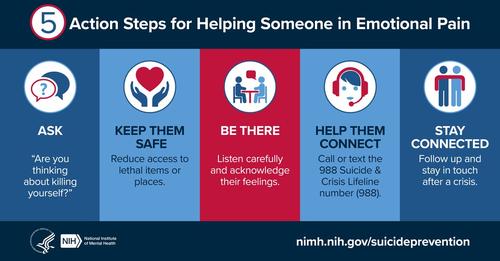Psychological Pain And Scam Victims Recovery
Helping Scam Victims to Understand Psychological & Emotional Pain – Its Causes and Ways to Recover
Primary Category: Recovery Psychology
Visit ScamPsychology.org for more
Authors:
• Vianey Gonzalez B.Sc(Psych) – Psychologist, Certified Deception Professional, Psychology Advisory Panel & Director of the Society of Citizens Against Relationship Scams Inc.
• Tim McGuinness, Ph.D. – Anthropologist, Scientist, Director of the Society of Citizens Against Relationship Scams Inc.
About This Article
Psychological or emotional pain is a form of mental suffering that can feel as real and intense as physical pain. It often manifests as a heavy weight on the chest, a deep ache, or a sense of emptiness, with emotional experiences ranging from intense sadness and hopelessness to anxiety and anger.
This pain can also lead to physical symptoms like headaches, stomachaches, fatigue, and muscle tension, disrupting sleep, appetite, and overall well-being. Psychological pain arises from various sources, including loss, trauma, mental health disorders, chronic stress, social rejection, and existential struggles.
Brain regions such as the anterior cingulate cortex and the insula, which are involved in processing physical pain, also become active during emotional pain. Neurotransmitter imbalances, stress responses, and changes in neural pathways further contribute to the experience of psychological pain.
Understanding and addressing these complex interactions can help in developing effective treatments and support systems for those affected.

What is Psychological or Emotional Pain and Why does it feel like Real Physical Pain?
Psychological or emotional pain is a state of mental suffering that encompasses a wide range of unpleasant feelings and experiences. It is often described as the mental equivalent of physical pain, involving distress, sorrow, or emotional hurt.
Common Experiences
Psychological pain can manifest in various ways and is highly subjective, but there are some common experiences that many people describe. It’s often likened to a heavy weight on the chest, a deep ache, or a sense of emptiness or numbness. Some describe it as feeling like a sharp, stabbing sensation, while others might feel it as a dull, persistent ache.
Emotionally, psychological pain can feel overwhelming, like an intense sadness, hopelessness, or despair. Feelings of anxiety, fear, or anger can also accompany it. For some, it’s a feeling of being trapped or suffocated by their thoughts and emotions.
Psychological pain can also manifest physically, leading to symptoms such as headaches, stomachaches, fatigue, sleepiness, or muscle tension. It can interfere with sleep, appetite, and overall physical well-being.
Ultimately, the experience of psychological pain is deeply personal and can vary greatly from one individual to another. It’s important to recognize and address these feelings with care and support.
Causes of Psychological or Emotional Pain
Psychological pain can arise from various sources, including:
Loss and Grief: The death of a loved one, the end of a significant relationship, or any major life loss can cause profound emotional pain.
Trauma and Abuse: Experiencing or witnessing traumatic events, including physical, emotional, or sexual abuse, can lead to deep psychological distress.
Trust-based Relationship Scams: Such as romance scams, crypto investment scams, and many other types can severely traumatize their victims and cause acute psychological dissonance, impairment, and pain.
Mental Health Disorders: Conditions such as depression, anxiety, and PTSD often involve significant emotional pain as a core symptom.
Chronic Stress: Prolonged exposure to stressors, such as financial problems, work-related pressures, or caregiving responsibilities, can lead to emotional exhaustion and pain.
Social Rejection and Loneliness: Feeling isolated or experiencing rejection in social or romantic relationships can cause significant emotional suffering.
Identity and Existential Issues: Struggles with self-identity, meaning, and purpose in life can result in feelings of emptiness and emotional pain.
Manifestation in the Brain
Emotional pain activates several brain regions that overlap with those involved in physical pain. Key areas include:
Anterior Cingulate Cortex (ACC): The ACC is involved in the emotional processing of pain. It is activated by both physical and social pain, contributing to the feelings of distress associated with emotional suffering.
Insula: This region processes emotions and bodily states, including the physical sensations associated with pain. It plays a role in the subjective experience of emotional pain.
Prefrontal Cortex: The prefrontal cortex is involved in regulating emotions and coping with pain. Dysfunction in this area can exacerbate the experience of psychological pain.
Amygdala: The amygdala processes emotions such as fear and sadness and is highly active during experiences of emotional pain. It helps encode emotional memories, which can influence long-term emotional states.
Psychological pain, like physical pain, involves complex interactions between the brain and body. While the exact mechanisms are still being studied, several key processes have been identified:
Brain Activation: When experiencing psychological pain, certain regions of the brain associated with emotion processing, such as the anterior cingulate cortex (ACC) and the insula, become highly active. These areas are involved in processing emotional distress and regulating emotional responses.
Neurotransmitter Imbalance: Changes in neurotransmitter levels, particularly serotonin and dopamine, have been implicated in psychological pain. Serotonin, often referred to as the “feel-good” neurotransmitter, plays a role in mood regulation, while dopamine is involved in the brain’s reward system. Imbalances in these neurotransmitters can contribute to feelings of depression, anxiety, and other forms of psychological distress.
Stress Response: Psychological pain triggers the body’s stress response, leading to the release of stress hormones such as cortisol and adrenaline. This can result in physical symptoms such as increased heart rate, elevated blood pressure, muscle tension, and changes in appetite and sleep patterns.
Activation of the Pain Matrix: Studies have shown that psychological pain activates similar brain regions as physical pain, known as the pain matrix. This includes regions such as the somatosensory cortex, which processes sensory information, and the amygdala, which is involved in processing emotions and fear.
Neural Plasticity: Chronic psychological pain can lead to changes in brain structure and function over time. This includes alterations in neural pathways and synaptic connections, which may contribute to the persistence of psychological symptoms and the development of mental health disorders.
Overall, psychological pain involves complex interactions between psychological, neurobiological, and physiological factors. Understanding these mechanisms can inform the development of effective treatments and interventions for individuals experiencing psychological distress.
Effects on Individuals
Psychological or emotional pain can significantly impact an individual’s overall well-being, leading to:
Behavioral Changes: Individuals may withdraw from social interactions, show changes in eating or sleeping patterns, or engage in riskier behaviors, including substance abuse.
Physical Symptoms: Emotional pain can manifest physically through symptoms like headaches, stomachaches, and muscle tension. Chronic emotional distress can also weaken the immune system.
Cognitive Impairment: Suffering from emotional pain can impair concentration, memory, and decision-making abilities. It can lead to persistent negative thinking and rumination.
Mental Health Disorders: Prolonged emotional pain can contribute to the development or worsening of mental health disorders, such as depression and anxiety.
Social Isolation: The experience of emotional pain can lead to feelings of loneliness and isolation, further exacerbating the individual’s suffering and creating a vicious cycle of pain and isolation.
Cognitive Dissonance, Cognitive Distress, and Psychological Trauma
Psychological or emotional pain is closely related to cognitive dissonance, cognitive distress, and psychological trauma through their shared impacts on mental and emotional well-being. These phenomena often interact and overlap, creating complex experiences of suffering.
Cognitive Dissonance
Cognitive dissonance occurs when a person holds conflicting beliefs, values, or attitudes, leading to psychological discomfort. This is very common at the end of a strong relationship scam.
Relationship to Emotional Pain:
Emotional Conflict: The discomfort from cognitive dissonance often translates into emotional pain as individuals struggle to reconcile conflicting thoughts. This internal conflict can lead to significant distress and anxiety.
Behavioral Impact: To reduce dissonance, people may change their beliefs or behaviors, but until this resolution occurs, the tension and emotional pain can persist. For example, scam victims might rationalize their continued engagement despite suspecting fraud, leading to emotional turmoil.
Long-term Effects: Chronic cognitive dissonance can lead to ongoing emotional pain, potentially contributing to more severe mental health issues if the dissonance is not resolved.
Cognitive Distress
Cognitive distress refers to the mental strain or discomfort arising from cognitive processes, such as excessive worry, rumination, or negative thinking patterns.
Relationship to Emotional Pain:
Mental Overload: Persistent cognitive distress can exacerbate emotional pain by overwhelming an individual’s coping mechanisms, leading to feelings of helplessness and despair.
Negative Thought Patterns: Cognitive distortions, such as catastrophizing or overgeneralizing, can intensify emotional pain by reinforcing negative beliefs and emotions.
Physical Symptoms: Cognitive distress often manifests physically, contributing to symptoms such as headaches, muscle tension, and fatigue, which can further amplify emotional pain.
Psychological or Emotional Trauma
Psychological trauma results from exposure to distressing events that overwhelm an individual’s ability to cope, leading to lasting emotional and psychological damage. Most scam victims will experience psychological trauma following their scam experience and have to face the aftermath with a broad range of symptoms including psychological or emotional pain.
Relationship to Emotional Pain:
Trauma and Pain Pathways: Trauma activates similar brain regions involved in processing physical pain, such as the amygdala and anterior cingulate cortex, leading to intense emotional pain.
PTSD: Post-traumatic stress disorder (PTSD) is a severe form of psychological trauma that involves persistent re-experiencing of the traumatic event, avoidance of trauma-related stimuli, and hyperarousal, all of which contribute to ongoing emotional pain.
Interpersonal Effects: Trauma can disrupt relationships and social functioning, leading to feelings of isolation and compounded emotional pain. The loss of trust and safety in relationships can further exacerbate emotional suffering.
Interconnections and Effects
Overlapping Symptoms: Cognitive dissonance, cognitive distress, and psychological trauma share overlapping symptoms, including anxiety, depression, and intrusive thoughts, all contributing to emotional pain.
Compounding Factors: These conditions can interact, compounding the severity of emotional pain. For instance, trauma can lead to cognitive distortions that exacerbate cognitive distress and create cognitive dissonance, leading to a vicious cycle of suffering.
Neurobiological Impact: All these phenomena involve changes in brain chemistry and function, particularly in regions related to emotion regulation and stress response, such as the prefrontal cortex, hippocampus, and amygdala .
Coping and Treatment
Addressing psychological pain often involves:
Therapy: Various forms of psychotherapy, such as cognitive-behavioral therapy (CBT), can help individuals process and manage emotional pain. Cognitive-behavioral therapy (CBT) can help reframe negative thought patterns and resolve cognitive dissonance. Trauma-focused therapies, such as EMDR, can help process and heal traumatic memories.
Medication: Antidepressants or anti-anxiety medications may be prescribed to help manage symptoms.
Support Systems: Strong social support from friends, family, or support groups can provide emotional relief and a sense of belonging. Social support and professional counseling provide critical emotional validation and coping resources. SCARS Provides support services at support.AgainstScams.org
Healthy Lifestyle: Regular exercise, a balanced diet, and adequate sleep can improve emotional resilience and reduce the impact of emotional pain.
Mindfulness and Relaxation Techniques: Practices such as mindfulness meditation, deep breathing exercises, and yoga can help manage stress and alleviate emotional pain.
Summary
Understanding psychological or emotional pain is essential for addressing its profound impact on individuals. Comprehensive care that includes emotional support, therapeutic interventions, and lifestyle adjustments can significantly improve the well-being of those suffering from emotional distress.
In understanding the intricate relationships between these types of psychological pain and their underlying causes it helps find effective treatments that aid recovery. Through comprehensive care that addresses both emotional and cognitive aspects, individuals can achieve significant relief and improved mental health.
References
- American Psychological Association. Cognitive Dissonance Theory.
- National Institute of Mental Health. Post-Traumatic Stress Disorder.
- Psychology Today. Understanding Cognitive Distortions.
- Harvard Health Publishing. Emotional and Psychological Trauma.
These resources provide further insights into the complex nature of psychological and emotional pain and its relationship to cognitive processes and trauma.
National Institute of Mental Health 5 Action Steps for Helping Someone in Emotional Pain
Suicide is a major public health concern and a leading cause of death in the United States and is connected with Psychological or Emotional Pain.
Suicide is complicated but it can be preventable. Knowing the warning signs for suicide and how to get help can help save lives.
5 Action Steps
Here are 5 steps you can take to be there to help someone in emotional pain:
- ASK: “Are you thinking about killing yourself?” It’s not an easy question but studies show that asking at-risk individuals if they are suicidal does not increase suicides or suicidal thoughts.
- KEEP THEM SAFE: Reducing a suicidal person’s access to highly lethal items or places is an important part of suicide prevention. While this is not always easy, asking if the at-risk person has a plan and removing or disabling the lethal means can make a difference.
- BE THERE: Listen carefully and learn what the individual is thinking and feeling. Research suggests acknowledging and talking about suicide may in fact reduce rather than increase suicidal thoughts.
- HELP THEM CONNECT: Save the 988 Suicide & Crisis Lifeline number (call or text 988) and the Crisis Text Line number (741741) in your phone so they’re there if you need them. You can also help make a connection with a trusted individual like a family member, friend, spiritual advisor, or mental health professional. Worldwide Crisis Hotlines: International Suicide Hotlines – OpenCounseling : OpenCounseling
- STAY CONNECTED: Staying in touch after a crisis or after being discharged from care can make a difference. Studies have shown the number of suicide deaths goes down when someone follows up with the at-risk person.
Learn more about suicide prevention here.
Important Information for New Scam Victims
- Please visit www.ScamVictimsSupport.org – a SCARS Website for New Scam Victims & Sextortion Victims
- SCARS Institute now offers a free recovery program at www.SCARSeducation.org
- Please visit www.ScamPsychology.org – to more fully understand the psychological concepts involved in scams and scam victim recovery
If you are looking for local trauma counselors please visit counseling.AgainstScams.org or join SCARS for our counseling/therapy benefit: membership.AgainstScams.org
If you need to speak with someone now, you can dial 988 or find phone numbers for crisis hotlines all around the world here: www.opencounseling.com/suicide-hotlines
More Psychology Related Information:
- Helping Scam Victims Understand Cognitive Dissonance – 2024 (scamsnow.com)
- Learning And The Challenges That A Scam Victim Faces From Trauma And Related Cognitive Effects – 2024 (scamsnow.com)
- Scam Victim Stress – The Psychological, Cerebral, and Physiological Effects – 2024 (scamsnow.com)
- The Zeigarnik Effect On Mind And Perception – Have You Ever Noticed? A Cognitive Bias – 2024 (scamsnow.com)
- A Typical Scam Victim Journey Through Recovery Challenges – 2024 (scamsnow.com)
Statement About Victim Blaming
Some of our articles discuss various aspects of victims. This is both about better understanding victims (the science of victimology) and their behaviors and psychology. This helps us to educate victims/survivors about why these crimes happened and to not blame themselves, better develop recovery programs, and to help victims avoid scams in the future. At times this may sound like blaming the victim, but it does not blame scam victims, we are simply explaining the hows and whys of the experience victims have.
These articles, about the Psychology of Scams or Victim Psychology – meaning that all humans have psychological or cognitive characteristics in common that can either be exploited or work against us – help us all to understand the unique challenges victims face before, during, and after scams, fraud, or cybercrimes. These sometimes talk about some of the vulnerabilities the scammers exploit. Victims rarely have control of them or are even aware of them, until something like a scam happens and then they can learn how their mind works and how to overcome these mechanisms.
Articles like these help victims and others understand these processes and how to help prevent them from being exploited again or to help them recover more easily by understanding their post-scam behaviors. Learn more about the Psychology of Scams at www.ScamPsychology.org
SCARS Resources:
- Getting Started: ScamVictimsSupport.org
- FREE enrollment in the SCARS Institute training programs for scam victims SCARSeducation.org
- For New Victims of Relationship Scams newvictim.AgainstScams.org
- Subscribe to SCARS Newsletter newsletter.againstscams.org
- Sign up for SCARS professional support & recovery groups, visit support.AgainstScams.org
- Find competent trauma counselors or therapists, visit counseling.AgainstScams.org
- Become a SCARS Member and get free counseling benefits, visit membership.AgainstScams.org
- Report each and every crime, learn how to at reporting.AgainstScams.org
- Learn more about Scams & Scammers at RomanceScamsNOW.com and ScamsNOW.com
- Learn more about the Psychology of Scams and Scam Victims: ScamPsychology.org
- Self-Help Books for Scam Victims are at shop.AgainstScams.org
- Donate to SCARS and help us help others at donate.AgainstScams.org
- Worldwide Crisis Hotlines: International Suicide Hotlines – OpenCounseling : OpenCounseling
- Campaign To End Scam Victim Blaming – 2024 (scamsnow.com)
Psychology Disclaimer:
All articles about psychology and the human brain on this website are for information & education only
The information provided in this and other SCARS articles are intended for educational and self-help purposes only and should not be construed as a substitute for professional therapy or counseling.
Note about Mindfulness: Mindfulness practices have the potential to create psychological distress for some individuals. Please consult a mental health professional or experienced meditation instructor for guidance should you encounter difficulties.
While any self-help techniques outlined herein may be beneficial for scam victims seeking to recover from their experience and move towards recovery, it is important to consult with a qualified mental health professional before initiating any course of action. Each individual’s experience and needs are unique, and what works for one person may not be suitable for another.
Additionally, any approach may not be appropriate for individuals with certain pre-existing mental health conditions or trauma histories. It is advisable to seek guidance from a licensed therapist or counselor who can provide personalized support, guidance, and treatment tailored to your specific needs.
If you are experiencing significant distress or emotional difficulties related to a scam or other traumatic event, please consult your doctor or mental health provider for appropriate care and support.
If you are in crisis, feeling desperate, or in despair please call 988 or your local crisis hotline.
-/ 30 /-
What do you think about this?
Please share your thoughts in a comment below!
More ScamsNOW.com Articles
SCARS LINKS: AgainstScams.org RomanceScamsNOW.com ContraEstafas.org ScammerPhotos.com Anyscam.com ScamsNOW.com
reporting.AgainstScams.org support.AgainstScams.org membership.AgainstScams.org donate.AgainstScams.org shop.AgainstScams.org
youtube.AgainstScams.org linkedin.AgainstScams.org facebook.AgainstScams.org















Leave A Comment